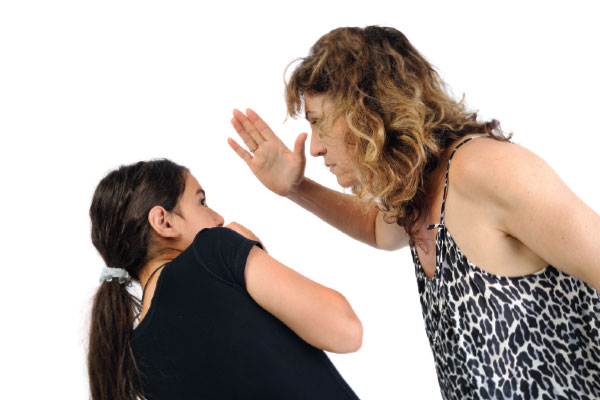Lamar Kanafani, the island’s first, and so far only, licensed marriage and family therapist, writes for WTM on the issues that concern mums.
I could make this article about the statistical findings of research done on the effects of spanking children, but I think I’ll refrain from that as you can go online and see for yourselves that spanking is not only ineffective in teaching children the life skills we want them to learn, it also makes children more aggressive in the short-term and likely to have mental health problems in the long-term. What spanking is effective in is scaring the child into submission, generating feelings of resentment towards the punisher and, while it may not become apparent right away, it changes the way a child thinks and feels about things.
So why is it that despite research evidence that spanking simply does not work in producing anything positive, parents still defend the use of it on some level. It is quite difficult to find parents that are 100 per cent against spanking under any circumstance. I hear parents say: “I’m totally against spanking, but once in a blue moon when I feel overwhelmed and my child is being impossible, then I don’t think it’s wrong to spank.”
And I think that’s part of the problem right there: “… when I feel overwhelmed”. Clearly, a parent spanking a child is an impulsive and reactionary behaviour aimed at the child because the parent finds the child’s behaviour problematic for them in that moment. Take the same behaviour of that child, occurring at a different time and space, say when the parent is in a more positive mood, I’ll place high dollar bets that the parent will choose an alternative way of reacting. And most, if not all, of us feel bad or guilty afterwards. That’s the internal intuitive indication that spanking is the wrong approach. I’ve had a few parents tell me they never spank their kids on impulse; that they would first go to cool off, and then come back to do the spanking. It would be an understatement on my part to say that I find that a highly disturbing parenting technique.
Many parents resort to spanking because they don’t see other options and are acting out of desperation. They feel they’re losing control over the situation or the child, and believe spanking will set everything straight. The ‘control’ the parent is trying to achieve has everything to do with their own fear, and nothing to do with teaching the child the concept of right and wrong. What the child does ‘learn’ is that he has been hit or hurt by a person who is supposed to love him. This is a confusing lesson in itself. It certainly doesn’t teach the intended lesson. The reality is that spanking your child only makes you feel more out of control, and leaves your child feeling distrustful of and resentful towards you. And worse, since spanking doesn’t work to get kids to comply, parents think they have to keep escalating it.
When I ask children how they felt when their parents spanked them, they respond with statements like: “I hate it! I’m not scared of the spanking, it just makes me angry and I hate them for it. It doesn’t make me want to listen to them. I feel like hitting them back. It’s unfair, they think they understand but they don’t.” Spanking thus does the opposite of what parents usually want it to do.
And if that’s not enough to prove spanking simply doesn’t work, then let’s talk science. When a child is spanked, the emotional centre of their brain goes into alarm mode; meaning, there is heightened activity in that area of the brain and lowered activity in other parts. The child’s brain clearly perceives spanking as threatening and responds accordingly. Under this survival mode, the mind is unable to learn. The prefrontal cortex, the part of the brain responsible for higher-level thinking skills like reason, judgement, analytical processing and executive decision-making, shuts down. Therefore, the child’s behavior during and after a spanking is not based on reason and logic. It’s totally based on reactivity.
Imagine then the effects if parents use spanking as a disciplinary technique. Over time, the emotional centre of the brain goes into long-term overdrive, and the other parts of the brain responsible for logic and reason goes into underdrive, leaving the emotional centre in control of your child’s behavioural responses. And so a vicious cycle results: a fearful child becomes aggressive or withdrawn, the parent spanks in response, the child becomes more frightened and loses control of his/her behaviour more often. This increases the likelihood that the child will suffer from emotional dysregulation as he/she is growing up.
In the end, spanking may produce certain immediate results; however, the long-term price to pay is high. The child’s sense of trust, safety, reasoning and learning abilities are all being slowly chipped away with every spanking episode — along with a child’s openness to love from his/her parent.
In next month’s article, I’ll talk about what to do instead of spanking.
For further questions or support, email [email protected] or call 36 009-665.





































